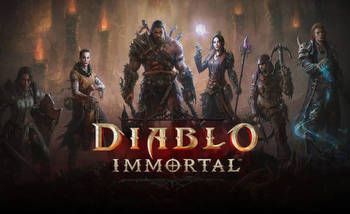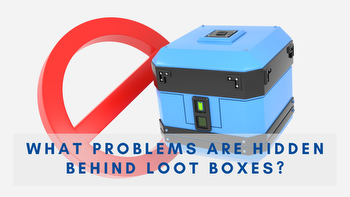Does gaming expose children to gambling?

One of the most desired presents to be left under the Christmas tree last year was the PlayStation 5. With global chip shortages and supply-chain issues, even Santa Claus and his elves had difficulty obtaining Sony's newest console. But what if that new console, and the games on it, was exposing children to gambling?
RTÉ 2FM's Jennifer Zamparelli chats to reporter Ryan Clarke about microtransactions, loot boxes and the dangers that video games can pose to children - listen above, and read Ryan's in-depth report below.
There are an estimated 55,000 people in Ireland with a serious gambling disorder, and video game industry experts say games like FIFA and Call of Duty have game modes which amount to gambling in all but name. These modes have "loot boxes," which are a form of microtransaction.
Loot boxes work similar to football sticker packs. In fact the better the item, the lower the odds are of you getting one, which results in massive revenues for video game publishers because players often have to buy dozens and dozens to get anything worthwhile.
The example most parents and gamers would be familiar with are FIFA Ultimate Team player packs and they drew comparisons to slot machines almost immediately. According to Irish video game documentary maker Danny O’Dwyer, loot boxes are based on similar psychological principles to gambling.
"Loot boxes operate like this thing called a 'Skinner box,’ it’s the same sort of psychology as gambling. Although it’s not gambling in and of itself, it’s pulling the same psychological levers as gambling," O’Dwyer said.
In psychology, a Skinner box was a method to study animal behaviour. B.F. Skinner hypothesised in the 1930s that if a behaviour was followed by a reward, it would condition the animal to continue to repeat that behaviour. Slot machines are seen by some to be more complex iterations of the original Skinner box, designed for humans not animals.
According to O’Dwyer, just as there are people in society for whom gambling is a major issue, so too are loot boxes because of that shared psychological foundation.
"There’s always a subset of people that loot boxes are way more influential on, so most of the legislation that we have seen so far is aimed at protecting those people," said O’Dwyer.
However, that legislation is limited and only operates in certain jurisdictions. This means that video game publishers still rake in billions of euro every year through loot boxes and other microtransactions.
Microtransactions allow players to pay for different costumes, weapons, or power-ups. In some games, microtransactions offer a way to speed up your character’s progression, thus making the game easier.
We use YouTube to manage extra content that can set cookies on your device and collect data about your activity. Please review their details and accept them to load the content.
Electronic Arts, who publish the FIFA and Madden NFL franchises, made $3.07 billion from microtransactions in 2020 with 29% of the company’s entire revenue coming from their Ultimate Team game modes. Activision-Blizzard, who own Call of Duty and Overwatch among others, also earned $5.74 billion from microtransactions in 2020.
Industry pundits believe that sports games tend to see more aggressive monetisation practises, like loot boxes and microtransactions, because the audience that play them are typically more casual gamers and, crucially, children.
"There are certain publishers who tend to be more predatory with this stuff than others. FIFA was one of the first games to implement a really aggressive microtransaction policy when it came to their Ultimate Team system. They’re publicly traded companies and, ultimately, the only thing they care about is profit," said O’Dwyer.
As the pushback against loot boxes and microtransactions increased in recent years, video game publishers sought to compare loot boxes to innocuous things like trading card games, Panini football stickers and Kinder Surprise eggs. Video game researcher, Dr. David Zendle, thinks that argument is disingenuous and distracts from the harm loot boxes cause.
"These comparisons are not scientific, we never thought it appropriate to regulate something based on similarity between products. Under a precautionary approach we ask for evidence of no harm up front, so these arguments about similarity are missing the point," said Dr. Zendle.
Dr. Zendle points to a study that spending on trading card games, like Pokemon and Magic: The Gathering, had no link with problem gambling. The same cannot be said for loot boxes. If someone has an issue with problem gambling, they often report spending more money on loot boxes.
"Loot box spending and gambling are linked, we’re just not sure why they’re linked. We have seen this effect replicated dozens of times across the world. It doesn’t matter if you’re looking at Australian gamers or Scandinavian children, the more money they report spending on loot boxes, the more severe their gambling problems are," Dr. Zendle said.
Dr Zendle’s findings raise an interesting question about the responsibility that the media has in covering this issue. Video game violence was consistently a topic of discussion by media organisations in the late 1990s and early 2000s, often in the aftermath of mass shootings. This is despite countless scientific studies outlining that violence in video games did not cause players to be violent in real life.
It suggests that the media, and society at large, are behind the times in terms of how they view video games. They are no longer a product that you buy in a shop, bring home, and complete.
Certain games are now labelled "games as a service" or a "live service" games because they are constantly changing, updating and adding new content to the game so gamers stay engaged with the game. Fortnite is one of the most popular examples of this.
In 2020, only 26% of Electronic Arts’ total revenue came from selling games. Dr. Zendle believes the video game industry can no longer be trusted to self-regulate and that there is a need for a bespoke regulator for the industry.
The Belgian Gaming Commission banned loot boxes in 2018, and according to a BBC report, gamers there were "supportive of the ban." In recent years the UK was looking at the issue as well, although progress has stalled on legislation. China requires publishers to tell players the odds of getting each item in a loot box, and quite often the odds are miniscule.
In October last year, the Government published the General Scheme of the Gambling Regulation Bill. It outlines that an independent statutory body will be established in 2023 to regulate gambling in Ireland, and while it "recognises the ever-increasing impact of technology on gambling," there is no mention of loot boxes.
For most people, loot boxes are a minor annoyance, but for some others there are real consequences and harm from them, according to Danny O’Dwyer.
"When it comes to younger people and folks who may have an issue with gambling or maybe don’t make great decisions with money, it would be wonderful to bring in something to protect them.
"Ultimately, I think that would be a win-win for the industry and society, publishers would love to have the stink taken off this," O’Dwyer said.




































